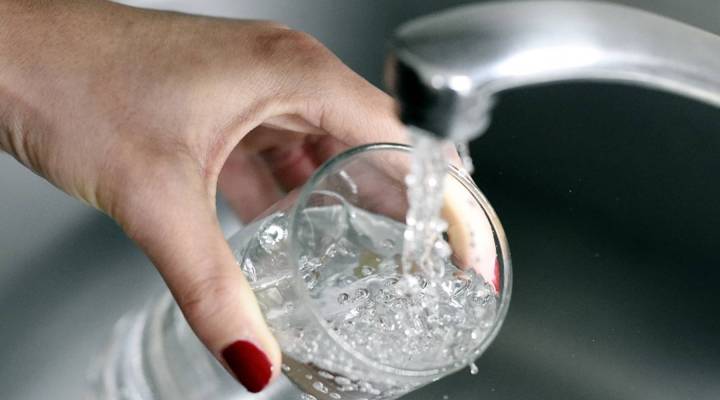
Why tariffs threaten to raise the cost of drinking water
Why tariffs threaten to raise the cost of drinking water

The Crescenta Valley Water District expects to pass on higher costs to customers in the four Los Angeles County towns it serves. The reason? Yep, tariffs.
“We’re seeing about a 2 percent increase, primarily due to the increase in our materials cost,” said David Gould, a district engineer.
To treat water for pollutants such as nitrates, Crescenta users filter balls made of resin. Underground water is piped into 15-foot-tall vats full of the filter balls, “which kind of look like bean bag, Styrofoam balls. It’s very similar to that,” said Gould.
Those filter balls are getting more expensive. The U.S. company that manufactures them in China is subject to a 25 percent tariff. “We anticipate the cost to be 25 to 30 percent more, so we’re looking at $40,000 to $50,000 extra of cost,” Gould said.
Municipal water systems like Crescenta also uses steel pipes, and steel imports have also been slapped with duties. These higher prices for materials are getting passed directly to consumers in the form of rate increases on their water bills.
Purolite makes the water-purifying resin balls. It sells them to industrial clients and municipal water systems around the country that serve millions of consumers. It’s a U.S. company, but it owns a factory in China.
One way to get around the tariffs would be to make the filter resin here, said CEO Jacob Brodie, but it would be too expensive. “To build a new facility in the United States will cost tens of millions of dollars and take two to three years,” he said.
His factory in China serves customers all over the world, so building an additional factory just for the U.S. just doesn’t make economic sense, he said. “We couldn’t afford to shut the factory down in China.”
Purolite has applied to the U.S. Trade Representative be excluded from the tariff, but prospects are uncertain at best.
“The problem is, there’s no timeline for the USTR to decide our motion for reconsideration,” said Richard Weiner, an attorney with Sidley Austin LLP who represents Purolite.
The USTR has received about 5,000 applications to get exemptions from just a small piece of the China tariffs. The Commerce Department has received almost 36,000 applications for exemptions to steel and aluminum tariffs.
“This is such an unprecedented situation,” said Miriam Sapiro, a former deputy U.S. trade representative and now managing director at Sard Verbinnen. “As a small agency, USTR simply does not have the resources necessary to try and process the current backlog of request for exemptions.”
In some ways Purolite is lucky because at least it can apply for an exemption. Most companies don’t have that option under administration rules. Attorney Richard Weiner said he has no idea whether he’ll get a response to Purolite’s application in weeks, months or years. The USTR office didn’t respond when asked about the timeline.
“In our case, it’s urgent” Weiner said. “The goal of the Trump tariffs is to punish China, but here we have a situation where the effect of the tariffs is solely to harm Americans, not Chinese. We’re caught in the crossfire.”
There’s a lot happening in the world. Through it all, Marketplace is here for you.
You rely on Marketplace to break down the world’s events and tell you how it affects you in a fact-based, approachable way. We rely on your financial support to keep making that possible.
Your donation today powers the independent journalism that you rely on. For just $5/month, you can help sustain Marketplace so we can keep reporting on the things that matter to you.












